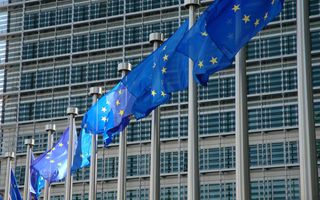(Finance) – The president, Ursula von der Leyenpresented the new Commission European. In the end, there are six executive vice-presidencies proposed: that of the Spanish Teresa Riberaof the Finnish Henna Virkkunenof the French Stephane Stayof Estonian Kaya Kallasof the Romanian Roxana You’re Minzatu and of Italian Raffale Dense. Fitto will be in charge of Cohesion and Reforms. “Raffaele Fitto will be responsible for cohesion policy, regional development and cities. He will bring his great experience to modernise and strengthen investments for cohesion and growth policies”, explained von der Leyen. “Italy is a very important country and this must also be reflected in the choice. The EP has 14 vice-presidents, two of which are from ECR. I have drawn the consequences for the composition of the Commission”, added von der Leyen.
“Congratulations to Raffaele Fitto for his appointment as Executive Vice President of the European Commission with responsibility for Cohesion and Reforms. An important recognition that confirms the newfound central role of our nation in the EU. Italy is finally back as a protagonist in Europe. Good luck Raffaele, we are sure that you will carry out your role very well in the interest of Europe and Italy”, commented the Prime Minister on her social media channels, Georgia Melons.
As for the other vice-presidencies, Teresa Ribera will be responsible for the just, clean and competitive transition, while Stéphane Séjourné will be responsible for industrial policy. Henna Virkkunen will lead the EU digitalisation and Roxana Minzatu will be responsible for talents and skills. Kaja Kallas will be the High Representative for Foreign Affairs and Security Policy. Below are all the other names of the new squad of the EU Commission.
Magnus Brunner (Austria): Home Affairs and Migration
Hadja Lahbib (Belgium): Preparedness, crisis management, equality
Ekaterina Zaharieva (Bulgaria): Start-ups, research and innovation
Dubravka Šuica (Croatia): Mediterranean Costas Kadis (Cyprus): Fisheries and oceans
Jozef Síkela (Czech Republic): International Partnerships
Dan Jørgensen (Denmark): Energy and Housing
Apostolos Tzitzikostas (Greece): Sustainable transport and tourism
Olivér Várhelyi (Hungary): Animal Health and Welfare
Michael McGrath (Ireland): Democracy, Justice and the Rule of Law
Valdis Dombrovskis (Latvia): Economy and Productivity, Implementation and Simplification
Andrius Kubilius (Lithuania): Defense and space
Christophe Hansen (Luxembourg): Agriculture and Food
Glenn Micallef (Malta): Intergenerational Equity, Youth, Culture and Sport
Wopke Hoekstra (Netherlands): Climate, clean growth and net-zero goals
Piotr Serafin (Poland): Budget, anti-fraud, public administration
Maria Luís Albuquerque (Portugal): Financial Services
Maroš Šefcovic (Slovakia): Trade and economic security, interinstitutional relations and transparency
Marta Kos (Slovenia): Enlargement
Jessika Roswall (Sweden): Environment, water resilience and competitive circular economy
“The entire college is committed to the competitivenessthe decarbonisation and the digitalization“, explained von der Leyen at the press conference. The president also declared that she wanted to follow “the recommendations of the relationship Dragons” for a Europe that is “more fluid, more interconnected, more coordinated” in its “different policies”.
The team will be composed of eleven womenequal to 40% of the entire team. Initial proposals from member states envisaged a quota of women equal to 22%. “This was completely unacceptable”, stressed von der Leyen, acknowledging that, despite the progress, there is “still a lot of work to do”.
